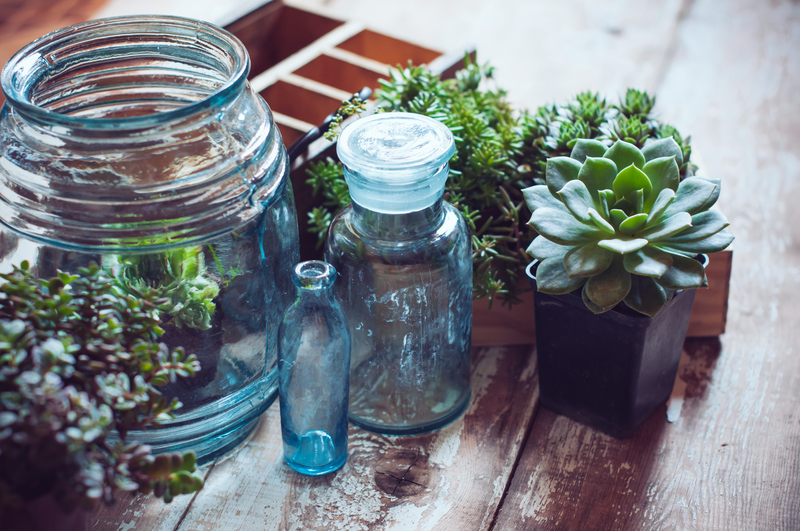The Green Way to Declutter Your Pots and Pans
Decluttering your kitchen can feel incredibly rewarding, especially when it comes to your collection of pots and pans. Yet, the way we dispose of unused or damaged cookware can have a significant impact on the environment. That's why it's time to embrace the green way to declutter your pots and pans--ensuring sustainability, organization, and peace of mind all at once. This comprehensive guide will help you understand how to organize your kitchen essentials responsibly, sustainably, and effectively.
Why a Sustainable Approach Matters
The kitchen is often a hotspot for clutter, and cookware like pots and pans are among the trickiest items to manage. Green decluttering goes beyond tidying up. It's about minimizing environmental impact, reducing waste, and making eco-friendly choices every step of the way. Here's why you should consider adopting a green approach to organize and dispose of your cookware:
- Reduce landfill waste: Non-recyclable pots and pans often end up in landfills for centuries.
- Conserve resources: Repurposing or recycling uses fewer resources than making new products from scratch.
- Protect your health: Minimized clutter leads to a healthier kitchen environment, reducing allergens and bacteria.
- Support your community: Many gently-used items can benefit local charities and shelters.

Step 1: Assess and Sort Your Pots and Pans
Start your green kitchen reset by emptying out your drawers or cabinets and laying out all of your cookware in plain sight. This is your chance to evaluate every item and decide what to keep, donate, or dispose of. When evaluating, ask yourself:
- Do I use this pot or pan regularly?
- Is it still in good, safe condition?
- Does it serve a unique function I can't replicate with another item?
- Is it made of sustainable or recyclable materials?
Take this time to clean anything that's dirty and look for repairable issues, such as loose handles or minor dents. Many pans just need a little TLC rather than being tossed out!
Categorize Your Cookware
Sort everything into three categories:
- Keep: Essential, frequently used, and undamaged items.
- Donate or Sell: Gently used cookware you no longer need.
- Recycle or Repurpose: Damaged or non-stick items with worn-out coatings.
Step 2: Donate or Sell Gently Used Pots and Pans
Decluttering your pots and pans the green way means finding new homes for good-quality items instead of sending them to landfill. Many people overlook just how valuable a spare saucepan, skillet, or Dutch oven can be for someone setting up a household. Here's how to give your old cookware a second life:
Where to Donate Used Pots and Pans
- Local shelters or food banks: Many transitional shelters need cookware for communal kitchens and for families moving into new residences.
- Thrift stores: Charity shops will gladly accept pans and lids in usable condition.
- Community centers: Some meal programs or community kitchens accept donations.
- Nonprofits focused on domestic violence survivors or immigrants: These organizations often help people moving into housing from challenging situations.
Selling Cookware Online or in Your Community
- Online platforms: Try Facebook Marketplace, eBay, Craigslist, or your local Buy Nothing group.
- Yard or garage sales: Neighborhood sales can help your cookware find a local home, quickly and easily.
Tip: Make sure all items are scrubbed, rust-free, and in good working order before donating or selling them.
Step 3: Responsibly Recycle Unusable Pots and Pans
Not every pan can be passed along--especially those that are warped, heavily rusted, or peeling nonstick coatings. However, even broken cookware can be handled in an environmentally friendly way. Here's how to responsibly dispose of your unwanted pots and pans:
Recycling Metal Cookware
Most pots and pans are made from metals like aluminum, cast iron, stainless steel, or copper. Here are your green options for dealing with them:
- Scrap yards: Bring in metal cookware (without plastic parts or nonstick coatings) to your local scrap metal facility for recycling.
- Recycling centers: Check with your municipality to determine if they accept scrap metal such as pots and pans in their curbside program or offer special drop-off days.
Important: Cookware with nonstick or ceramic coatings generally cannot be recycled with regular metals due to the chemical layer. Remove plastic, rubber, or wood handles before recycling, if possible.
Manufacturer Take-Back Programs
- Some brands offer "take-back" or recycling programs for their products. Check with major manufacturers for drop-off instructions.
Pro Tip: If you have older cookware brands (especially cast iron or copper), research before recycling--some are collectible and can be valuable!
Step 4: Upcycle, Repurpose, and Get Creative!
Before you throw out damaged or unwanted pots and pans, consider creative ways to upcycle or repurpose them in your home or garden. The greenest way to declutter cookware might be turning it into something new!
Fun Repurposing Ideas
- Planters: Turn worn-out saucepans or Dutch ovens into quirky, industrial-style flower pots.
- Bird baths: Large frying pans can become shallow bird baths with a simple paint job and a stand.
- Wall decor: Old pans, especially those with a vintage look, make rustic wall art or unique kitchen shelves.
- Organization aids: Use small pans or lids as catch-all bowls for keys, coins, or craft supplies.
- Garden tools: Repurpose cast iron or stainless pans as scoops, garden trays, or outdoor bowls for pets.
Let your imagination guide you! If your cookware still has a sturdy handle, try mounting it for a homemade hook or rack.
Step 5: Organize What You Keep--The Eco-Friendly Way
After responsibly decluttering, it's time to create a simpler, more sustainable cookware storage system. Here's how to organize what remains--a key part of any green kitchen makeover:
Best Practices for Green Cookware Storage
- Group by function, not by set: Mix and match to save space--store together the items you use most frequently.
- Use existing storage: Avoid buying new plastic organizers. Repurpose baskets, bins, or old boxes to keep things tidy.
- Vertical storage: Hang pans on wall hooks or racks to free up cupboard space and reduce stacking (which can cause scratching).
- Lid organizers: Reuse dish racks or file holders for pan lids.
- Label and inventory: Keep a list of your cookware in a kitchen drawer or app, so you know exactly what you have, preventing overbuying.
Think minimal and practical: Retaining only what serves your cooking habits will save time, reduce clutter, and minimize future waste.
Eco-Friendly Tips for Maintaining Pots and Pans
Maintenance is essential to keep your cookware lasting as long as possible. Minimalism is sustainable, but only if you take care of the essentials you keep. Here's how to extend the lifespan of your pots and pans the green way:
Gentle Cleaning Techniques
- Use soft, natural sponges and eco-friendly dish soap.
- Avoid harsh abrasives that wear down surfaces.
- Hand-wash when possible to avoid warping, especially with nonstick or wood-handled pans.
- Season cast iron regularly to maintain its nonstick surface naturally.
Safe Storage Practices
- Stack with protective layers: Use old kitchen towels or cork mats between pans to prevent scratches.
- Hang when possible: Hanging pans lets air circulate and avoids moisture build-up, preventing rust.
Minor Repairs and Refurbishing
- Tighten screws and handles with a basic screwdriver.
- Remove rust from cast iron with steel wool and re-season.
- Restore shine on stainless pans with vinegar and baking soda.
Following these steps means you'll not only reduce future waste but also save money and energy in the long run!
Key Benefits of Going Green with Your Kitchen Decluttering
The process of sorting, recycling, and repurposing your pots and pans delivers lasting rewards. Here are some compelling benefits of choosing the eco-friendly path to organize your kitchen cookware:
- Lower landfill contribution: Each item reused or recycled means less trash for our planet.
- Support for local communities: Donations help those in need set up safe, comfortable kitchens.
- Reduced consumption: Staying organized leads to buying only what you need in the future.
- Personal satisfaction: Creating a more efficient, welcoming kitchen space.
- Inspiration for green living: Small eco-friendly steps inspire others to do the same, creating a ripple effect.

Frequently Asked Questions -- The Green Way to Declutter Cookware
Can pots and pans go in the recycling bin?
Most curbside recycling programs do *not* accept cookware due to their size, coatings, and mixed materials. However, many local scrap yards or recycling centers do accept metal cookware if you remove plastic or nonstick coatings first. Always check your local regulations!
What should I do with old nonstick pans?
Pans with worn or chipped nonstick coatings should not be used for food preparation. If they're beyond repair, check if your municipality has special recycling for coated metals. Otherwise, look into manufacturer take-back programs or get creative with upcycling ideas.
How can I prevent clutter in the future?
- Adopt a "one in, one out" rule: When you buy a new pan, donate or recycle an old one.
- Opt for multi-use cookware: Choose pieces that can serve more than one function.
- Review your collection seasonally: Quick reviews prevent items from piling up.
Final Thoughts: Make Green Decluttering a Kitchen Habit
Decluttering your pots and pans the green way isn't just about cleaning out your kitchen. It's a mindful, responsible practice that puts the environment--and your own wellness--first. By donating, recycling, upcycling, and organizing more intentionally, you contribute to a healthier planet while enjoying a sleek, efficient cooking space.
Start today: Pull everything out, sort mindfully, and set up a sustainable system for the future. You'll rediscover favorite pieces, help your community, and take an important step toward greener living--one pot and pan at a time.